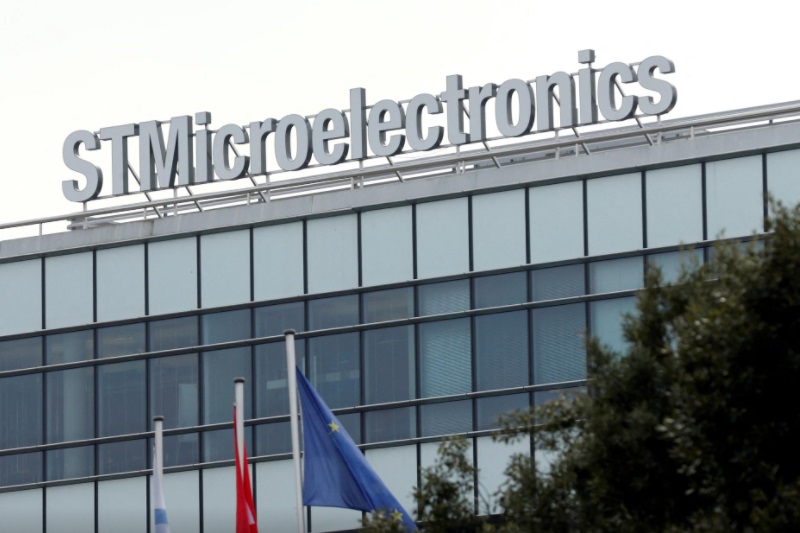Investing.com -- Shares of STMicroelectronics (EPA:STMPA) traded lower on Monday after Morgan Stanley downgraded the stock to "underweight" from "equal-weight," citing mounting challenges within the automotive sector and overall sales declines anticipated in fiscal year 2025.
The brokerage pointed to overestimated market expectations, especially in automotive, and believes that STMicroelectronics may struggle to meet optimistic projections.
This stems partly from an inventory buildup in automotive components, which STMicroelectronics itself hinted at in its recent guidance, as well as competitive dynamics in pricing for automotive semiconductors.
Morgan Stanley analysts expressed concerns about weak utilization rates, which continue to strain margins across STMicroelectronics' automotive segments.
They expect this under-utilization could affect margins well into 2025, compounding the pressure from higher depreciation costs tied to prior capital expenditures in semiconductor fabrication.
The analysts further flag that recent channel checks have shown softened demand within the auto sector, especially amid a shift away from electric vehicles in Europe and the U.S., which may result in a more sluggish recovery trajectory than expected.
Another factor driving Morgan Stanley’s price target cut to €20 from €35 per share is the forecasted flat performance in other key business segments beyond automotive, such as industrial and personal electronics.
The analysts warn of underwhelming sales recovery in these areas, suggesting that overall revenue for STMicroelectronics may decline by about 24% in 2024 and a further 4% in 2025.
The semiconductor company also faces potential pricing pressures in China, where it is experiencing intense competition from local players, making margin recovery increasingly challenging.
This downgrade reflects a broader concern about the current semiconductor cycle, with Morgan Stanley analysts noting that STMicroelectronics is particularly vulnerable in comparison to peers like Infineon (OTC:IFNNY), given its greater exposure to China’s semiconductor market and automotive dependencies.
The analysts suggest that a more cautious investor outlook may be prudent given the anticipated dip in automotive revenues and a tough road ahead for margin recovery.
